- Mercer serves over 30,000 people each year in our associate degree programs, credit and noncredit certificate programs, continuing education, customized training for businesses, career training, youth programs, and summer camps for children. Many more come to campus for cultural activities, sporting events and our fitness center and pool.
School Highlights
Mercer County Community College serves 8,392 students (32% of students are full-time).
The college's student:teacher ratio of 14:1 is lower than the state community college average of 19:1.
Minority enrollment is 68% of the student body (majority Hispanic and Black), which is more than the state average of 65%.
Quick Stats (2025)
- Enrollment: 8,392 students
- In-state tuition: $4,644
- Out-state tuition: $6,732
- Student:teacher ratio: 14:1
- Minority enrollment: 68%
- Source: Integrated Postsecondary Education Data System (IPEDS)
Top Rankings
Mercer County Community College ranks among the top 20% of public schools in New Jersey for:
Category
Attribute
Diversity
School Overview
The teacher population of 583 teachers has stayed relatively flat over five years.
Mercer County Community College
(NJ) Community College Avg.
Carnegie Classification
Associate's Colleges: Mixed Transfer/Career & Technical-High Traditional
Baccalaureate Colleges: Diverse Fields
Institution Level
At least 2 but less than 4 years
At least 2 but less than 4 years
Institution Control
Public
Private not-for-profit
Total Faculty
583 staff
439 staff
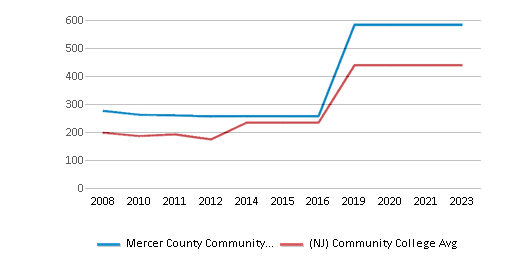
School Calendar
Student Body
The student population of Mercer County Community College has grown by 12% over five years.
The student:teacher ratio of 14:1 has increased from 11:1 over five years.
The Mercer County Community College diversity score of 0.79 is more than the state average of 0.77. The school's diversity has stayed relatively flat over five years.
Total Enrollment
8,392 students
1,067 students
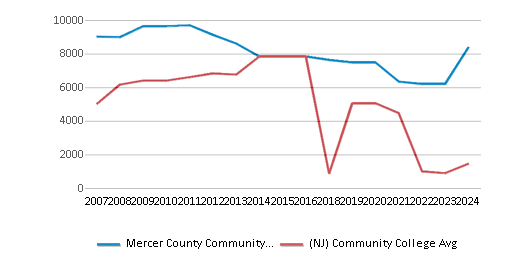
Student : Teacher Ratio
14:1
19:1
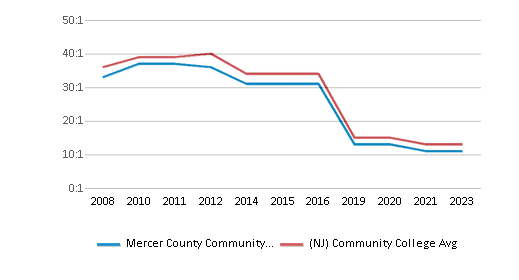
# Full-Time Students
2,646 students
699 students
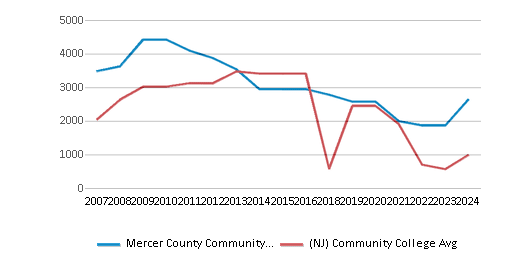
# Part-Time Students
5,746 students
1,319 students
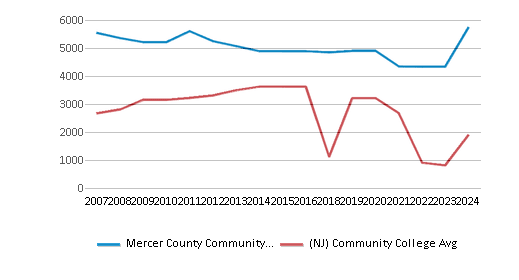
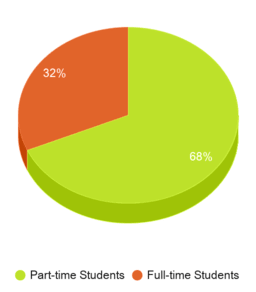
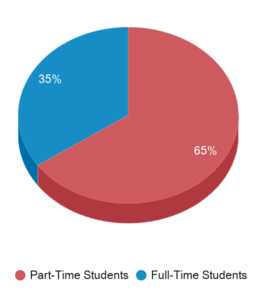
# Enrollment Undergraduate
839 students
327 students
# Full-Time Undergraduate Students
2,646 students
699 students
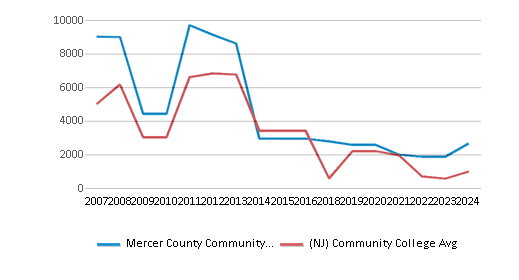
# Full-Time Graduate Students
n/a
50 students
# Part-Time Undergraduate Students
5,746 students
1,213 students
# Part-Time Graduate Students
n/a
6 students
Total Dormitory Capacity
n/a
20 students
% American Indian/Alaskan
n/a
n/a
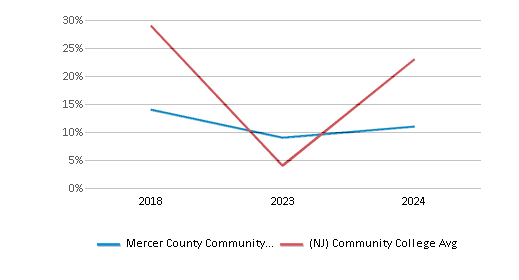
% Asian
9%
8%
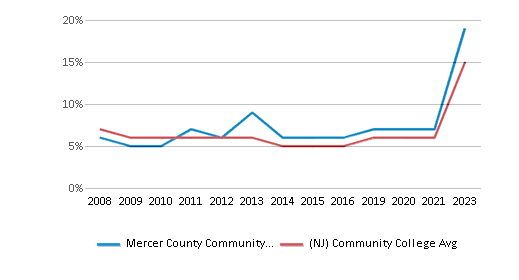
% Hispanic
24%
26%
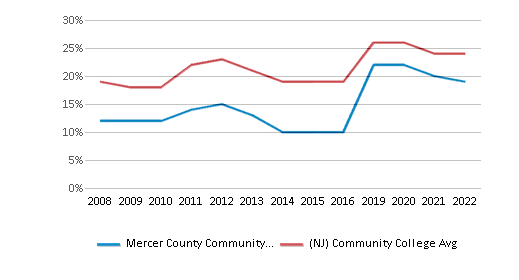
% Black
19%
15%
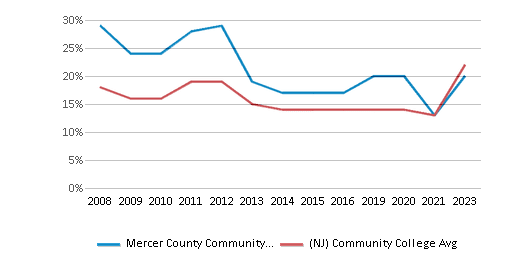
% White
32%
35%
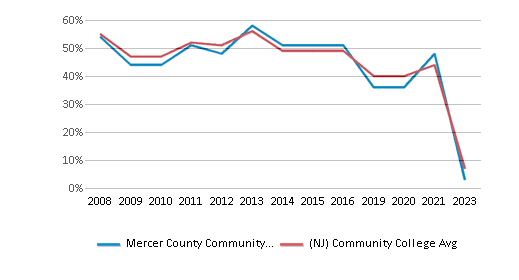
% Hawaiian
n/a
1%
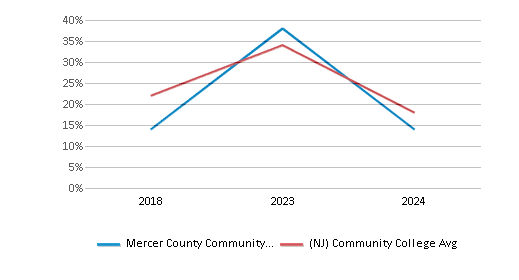
% Two or more races
3%
3%
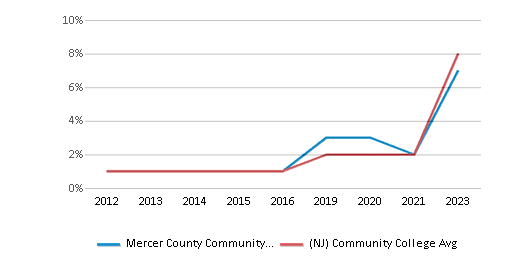
% Non Resident races
5%
2%
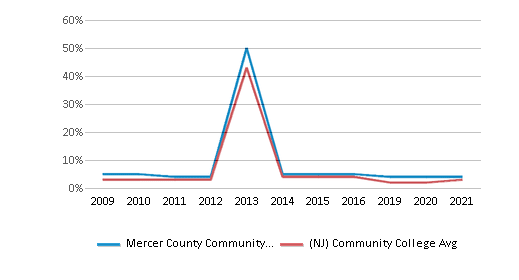
% Unknown races
8%
10%
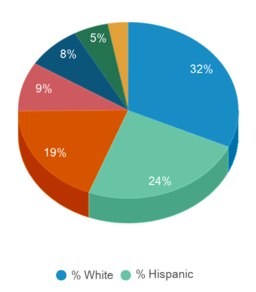
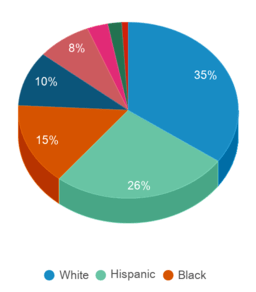
Diversity Score
0.79
0.77
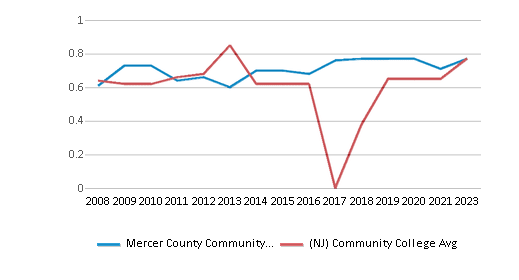
College Completion Rate (Students who graduate in less than 4 years)
0.1735%
0.3963%
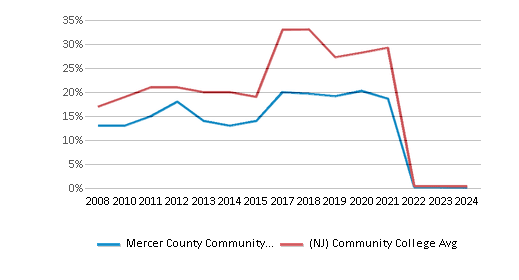
College Completion Rate (Students who graduate in 4 years or more than 4 years)
n/a
0.42%
Average Graduate Earnings (10 Years)
$37,800
$36,100
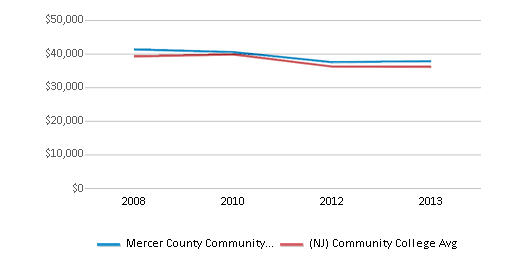
Tuition and Acceptance Rate
The public in-state tuition of $4,644 is less than the state average of $5,470. The in-state tuition has declined by 20% over four years.
The public out-state tuition of $6,732 is less than the state average of $7,575. The out-state tuition has declined by 16% over four years.
In-State Tuition Fees
$4,644
$5,470
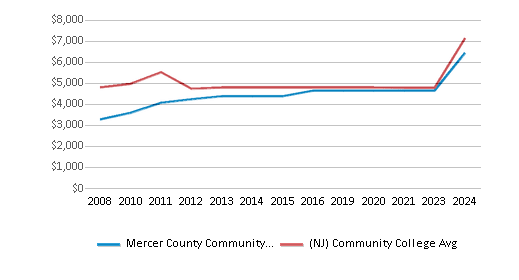
Out-State Tuition Fees
$6,732
$7,575
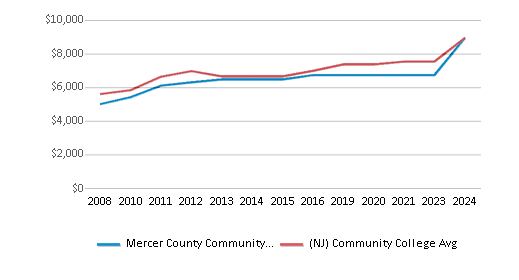
% Students Receiving Some Financial Aid
57%
87%
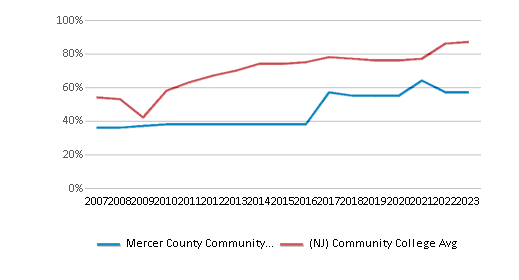
Median Debt for Graduates
$9,703
$11,000
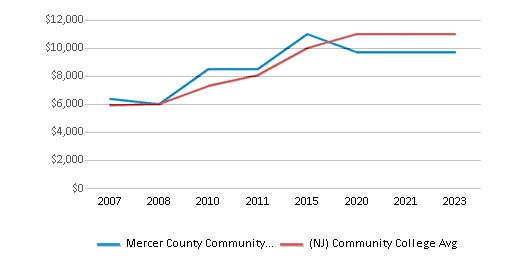
Median Debt for Dropouts
$6,500
$5,500
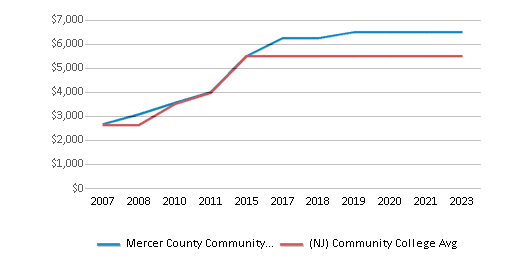
Acceptance Rate
n/a
76%
Source: 2024 (or latest year available) Integrated Postsecondary Education Data System (IPEDS)
School Notes
- Established in 1966, Mercer County Community College (MCCC) is a publicly supported comprehensive educational institution that provides opportunities for higher education through an open-door admission policy. The scenic 292-acre West Windsor Campus was opened in 1971 to serve the needs of Mercer County residents. The newly-expanded James Kerney Campus, located in downtown Trenton, serves as an educational and cultural hub for city residents. MCCC offers 65 associate degree programs and numerous credit and noncredit certificate programs. MCCC degrees and courses transfer to numerous senior colleges through transfer agreements. Students can also enroll in a dual admissions program, which guarantees transfer into the junior year at six New Jersey colleges — Rutgers, Rider, The College of New Jersey, Montclair, NJIT and Thomas Edison. Mercer County Community College has enjoyed four decades of excellence in two-year college athletics. Mercer offers intercollegiate competition in men's and women's soccer, basketball, and tennis; men's baseball and women's softball. Some sports offer scholarship opportunities for entering student athletes. The college is accredited by the Commission on Higher Education of the Middle States Association of Colleges and Schools and is authorized by the State of New Jersey's Commission on Higher Education to award associate degrees. Many of the college's academic programs are also accredited by national professional associations and their boards of certification.
Frequently Asked Questions
How much does Mercer County Community College cost?
Mercer County Community College's tuition is approximately $4,644 for In-State students and $6,732 for Out-State students.
What is Mercer County Community College's ranking?
Mercer County Community College ranks among the top 20% of community college in New Jersey for: Diversity in US community colleges.
Recent Articles

Obtaining Your Bachelor's Degree at a Community College
Explore the evolving landscape of community colleges offering bachelor's degrees, addressing affordability, accessibility, and workforce needs.

A to Z of Community College Certificates and Courses
From business and healthcare to technology and skilled trades, the article showcases the breadth of options available to students seeking to enhance their knowledge, develop new skills, or pursue career advancement.

What is a Community College?
This comprehensive guide explains what a community college is, its history, and its role in higher education. It covers the types of programs offered, differences from four-year colleges, benefits of attending, and important considerations for prospective students, providing valuable insights for those exploring educational options.









